BRITAIN is in the grip of a cost of living crisis. Jeff Goulding speaks to businesses, organisations and MPs in Liverpool on the economic catastrophe that lies ahead.
For many supporters, going to the game is fast becoming a luxury they can ill afford, and for others there are dire choices over whether to heat their homes or put food on the table.
Meanwhile, for small businesses, the rising cost of energy threatens their very existence. In this feature, This is Anfield explores the impact of the current crisis on the Anfield area, which is a fragile ecosystem of people, community services and local businesses under enormous pressure.
To be clear, the cost of living crisis is not purely an Anfield issue. It’s not even just a Liverpool issue. Communities up and down the country face very real challenges this winter, and it is a grim reality that some will not survive it.
In Britain today, 4.3 million children live in poverty and, according to the Trussell Trust, foodbank use has increased by 14% in the last 12 months. Planned rises in energy costs have subjected communities to real hardship, fear and anxiety, and even government announcements that prices will be capped at £2,500 per year will do little to alleviate the suffering of people already living below the breadline, not to mention business teetering on the brink.
Those who regularly visit Anfield on matchdays will have become familiar with Fans supporting Foodbanks collection point at the corner of the Kop and the Sir Kenny Dalglish Stand, donations to which support the North Liverpool Foodbank and an area locked in a dreadful struggle for survival. The increasing demand for assistance, coupled with the fact that many middle income earners can no longer afford to donate, means some charities are running out of food and have resorted to rationing care packages.
Though this is clearly a national issue, Liverpool is at the forefront of the daily struggle to get by. Thirty-seven percent of kids in the Walton constituency, which covers both Anfield and Goodison, are already classed as living in poverty. That represents some 6,658 children.
In an article in the Guardian in July 2022, Ann Roach, a community worker in Everton, spoke of the desperate measures some people in the area are resorting to as they face up to the coming winter:
“People are looking for throwaway barbecues,” she told the paper, “old barbecues and wood for fires to cook on for the winter. People are already buying candles [to use as lights].”
A losing battle
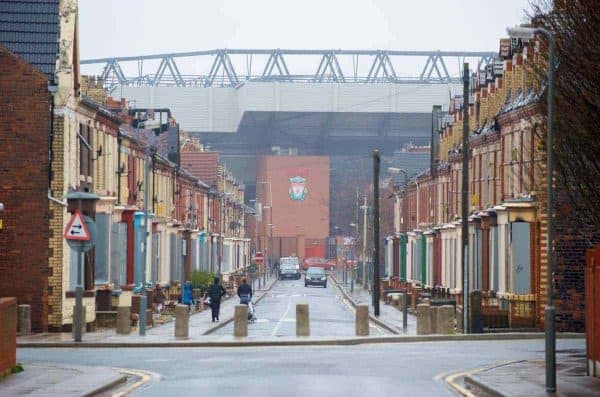
According to Feeding Liverpool, a local food alliance established in 2015, nearly 60% of the city’s children live in wards that are defined as among the poorest 10% in England. A survey commissioned by the organisation found that low income was the key reason for foodbank use in the city.
Of course, Anfield is synonymous with football, and the fortunes of the community are now deeply interwoven with Liverpool Football Club. Both the LFC Foundation and the club’s Red Neighbours programmes have been quick to recognise the issue and are trying to help.
According to the club’s social impact report 2020/21, their charities raised £320,000 to help families struggling to feed themselves, collected 15 tonnes of food, as well as preparing, cooking and delivering 52,000 meals across the area.
The work is ongoing and the demand continues to grow. For example, over the recent Easter 2022 period, the club’s Red Neighbours team delivered 280 breakfast hampers to 28 schools across Anfield and Kirkby to support local pupils and their families during the half-term break, as part of its ‘Breakfast to You’ initiative.
The Foundation’s 2021/2022 impact assessment is due out in a matter of weeks, and it’s likely to show a significant increase in the amount of people being supported by the club and its charities. However, despite the efforts of the club, community campaigners and various charities, the situation is continuing to deteriorate.
Recently, the Governor of the Bank of England has issued dire warnings of “apocalyptic” global food price rises fuelled in part by the rising cost of energy. Energy prices in Britain are forecast to have risen by 178% in the year to October 2022. This is 35 times faster than wages and 57 times faster than benefits.
Dan Carden, MP for Liverpool Walton recently told Parliament:
“When my constituency office team recently visited a local food bank to volunteer, one of my constituents asked for ready-to-eat food not because he could not cook but because he could not pay his energy bill, and without gas or electricity, he could not even boil water for a pot noodle or cook a microwave dinner.”
For too many people living in the area around Anfield and Goodison the daily struggle for survival must feel like a losing battle, and its combatants often feel invisible. On matchdays, save for the regular appearance of Fans Supporting Foodbanks collectors, it is too easy to miss this crisis happening in plain sight.
“Harder to make a living”
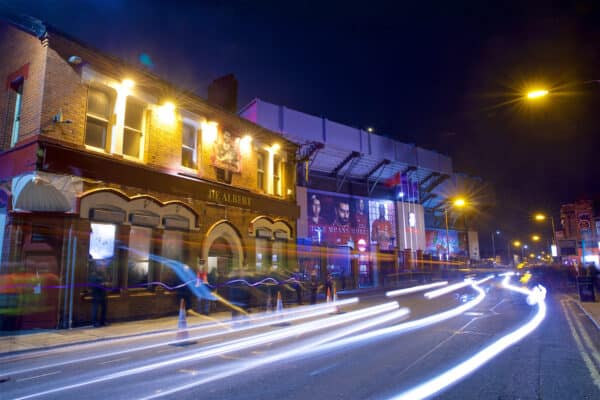
Attending the game is associated with rituals and habits, a trip to Homebaked, the chippy and often the pub. Others will visit independent vendors that line the streets of Walton Breck Road, selling burgers and hotdogs. It’s a tradition as old as football itself, and yet even this is now under threat.
The Association of Convenience Stores has issued a prediction that thousands of local community stores are set to close due to the rising cost of energy.
Meanwhile, representatives of the hospitality sector, which includes the very pubs, cafes and fast food outlets which support the fan economy around Anfield, have pointed out that many of these businesses will simply fold if the predicted price rises go ahead. Many may do so anyway.
In a recent interview with Liverpool World, Tony Kay, director at Docklands Fish and Chips on the Royal Albert Dock, spoke of how his business is already struggling, with the cost of ingredients such as oil, potatoes and fish spiralling, and with some suppliers doubling their prices.
We spoke to Mick Deane, part-owner of Hat Scarf or a Badge, about how the crisis is affecting his business. Mick’s shop is a popular outlet on Walton Breck Road, which sells unofficial Liverpool FC merchandise. He was already concerned about the impact of the rising cost of living, and after receiving the latest estimate from his energy provider, he now fears for the future of the business.
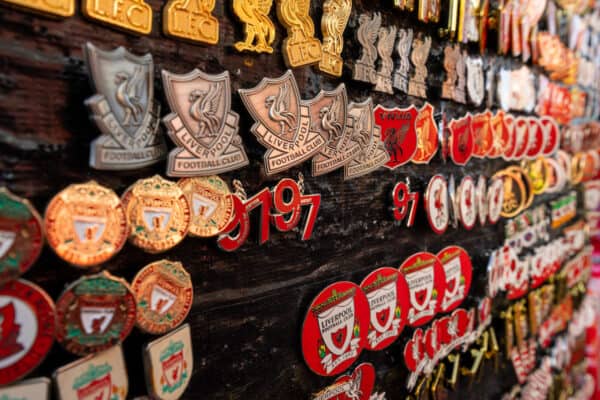
He told us about the measures he is taking to stay afloat, and spoke of his pessimism for the future:
“Like every small business this is going to have a massive effect on us. We have just had the estimated bill for the next 12 months and it has more than doubled. We are doing our best, we’ve installed low energy lightbulbs and are trying to reduce our energy usage.
“Even if they capped the prices at £2,500 as suggested for domestic users, that’s still a lot for small businesses like ours to cope with. We really don’t want to increase the price of our products, but it is getting harder to make a living.”
This is Anfield spoke to several businesses in the area, with many privately sharing Mick’s concerns and talking of the very real dilemma they face in terms of raising prices in the hope of continuing to make a living, while acknowledging the very real risk that customers who are themselves struggling with the cost of living may no longer be able to afford the goods and services they offer.
Many say that capping energy costs at £2,500 is a start, but not nearly enough to help them out of the hole they’re in.
“Frightening”
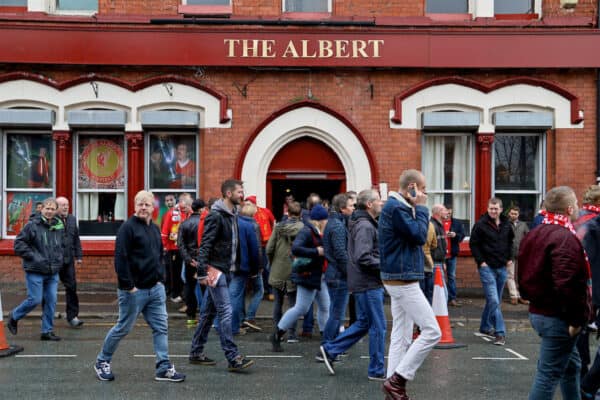
Ian Maloney, founder and owner of Love Follow Conquer, an independent trader who also sell unofficial Liverpool FC products, told us of the almost impossible position he and his business find themselves in. He also agrees that the proposed price cap of £2,500 cap will make little difference:
“Our energy costs have increased 130% over the last 12 months. So now we’re talking about energy costs being capped at £2,500 as the best scenario we can hope for!
“Sure, it’s better than paying more but this government isn’t acting in the interests of businesses in this country,” said Ian, who also points out that the price of energy is only part of the problem.
“The wider picture is equally as frightening for ourselves and I’m sure many other businesses. Since Brexit we’ve seen additional tariffs on fabrics of over 35%. Delivery costs we pay have increased over 40% for U.K. Shipments, including European duty paid shipments, are up over 100%. As a business we’ve not increased our prices for over five years, but sadly we’re having to now look seriously at our options.”
More broadly, the Liverpool hospitality sector underpins the city’s whole economy and some neighbourhoods are entirely dependent upon it. The sector supplies 10% of all jobs in the city region, which has already seen its income fall by 58% and 31,000 jobs lost since the pandemic.
These businesses exist as part of an ecosystem in which the balance between them and the community they serve is becoming increasingly fragile, and all elements of it are now in deep crisis. These are genuinely unprecedented times, and it’s hard to see a way out of it without a more robust government response.
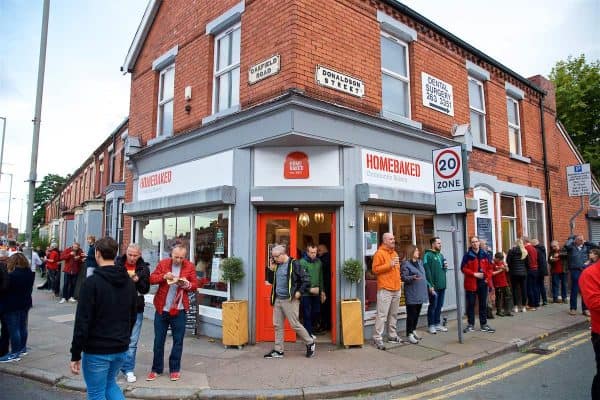
Tom Murphy facilitates the newly established Anfield and Everton Business Network, and is the Secretary and Coordinator of the Homebaked Community Land Trust, which includes the now famous bakery.
The Trust represents a group of local residents who have been working together since 2012 to build a model of community ownership in the area. The business network is focused on generating solutions and actions that meet the challenges faced by the neighbourhood. According to Mr Murphy one subject above all others is occupying the minds of his members in recent weeks.
“The conversations over the last few meetings have been overshadowed by concerns surrounding the cost of living crisis, “he explains. “Many are worried that the spiralling energy costs will push them to the point where their businesses are no longer viable. It’s an impossible position to be in because if businesses are forced to put their prices up, they run the risk of losing custom.”
The bakery, which sits in the shadow of the Kop is an example of a local business providing a vital service to the residents of Anfield. The building that it now occupies was saved from demolition by the people of Anfield and Everton. Desperate to show that regeneration can come from the bottom up, they have built an impressive social enterprise, which now employs 20 people and provides apprenticeship opportunities for local young people.
Many of us see Homebaked as a place to enjoy a pie before the game, perhaps chat at a table inside, but Homebaked is so much more than that to the community it serves. It supplies at least 20 nursery meals a day to Anfield Children’s Centre and has a partnership with Liverpool Homeless Football Club, supplying pies for its markets.
Thanks to funding support from the Spirit of Shankly supporters’ union and a collaboration with Vauxhall Community Law Centre, it also hosts weekly drop-in sessions, providing free debt and benefit advice to people in need. If this vital community service were to close, it would be greatly missed by supporters on matchdays, but it would leave a gaping hole in the lives of the people who depend on it daily.
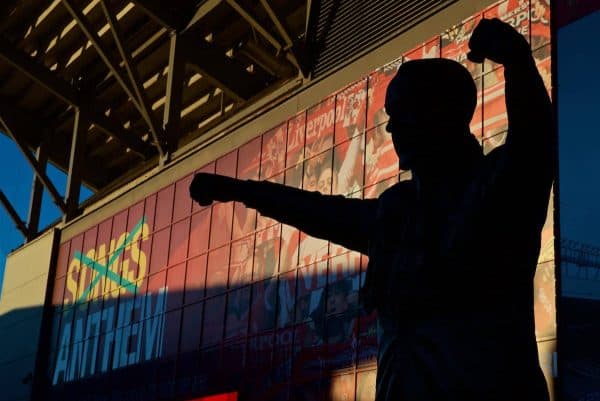
Joe Blott, Chair of Spirit of Shankly, told This is Anfield how vital the service provided by Homebaked is to the local community:
“Aside from the quick advice, the service has assisted over 40 individuals with cases ranging from benefits, debt and housing advice, with many of those in urgent need of support. Therefore, we see our partnership with Homebaked as vital to the community. It is viewed as a safe and accessible community hub.
“If services like this are put at risk by the cost of energy, then the area, already low on day to day community resources, will lose an essential service. It is these knock-on issues of the energy price hikes which will have long-lasting and devastating consequences.”
Lena Simic is a local councillor and a member of the city’s Climate Change and Environment Select Committee. For councillor Simic, this is a crisis facing the whole community, from households to local businesses and she is calling for a united response.
She says: “As Anfield councillor I am deeply concerned about the impact of energy price rises on our residents and local businesses, especially as this is driven by profiteering from energy companies.
“What worries me in our neighbourhood is that if local businesses are unable to pay their bills, and therefore are driven to raise the price of their goods, this will in turn impact on customers and all of us who live in, work in or visit Anfield. We need a strong campaign against the raising of the energy price cap and more regulations on energy companies.”
Profiteering
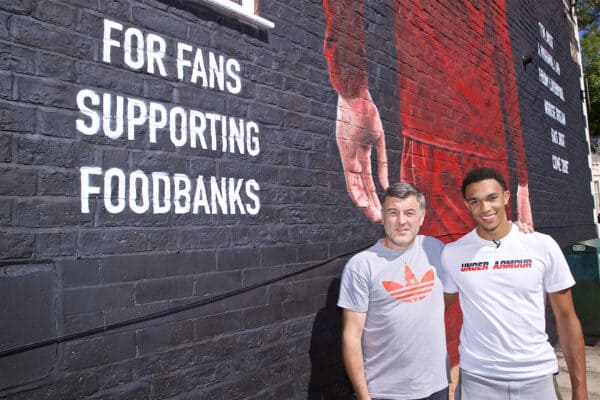
lan Byrne, the MP for the neighbouring Liverpool West Derby constituency agrees, highlighting the excessive profiteering by energy companies as a factor which is deepening the crisis on the city’s streets.
“It is not a price cap,” he says. “It is unfettered greed from a regulatory body bankrupt of social responsibility and acting wholly in the interests of a broken energy model. Our communities will be driven into poverty while trying to keep warm this winter, by private energy providers putting greed over need.”
Byrne is also concerned about the impact on local businesses, sharing his fears for the future if these price rises go ahead.
“Businesses, the lifeblood of our community, will go bust when what we desperately need is for them to grow and prosper,” he continued. “We need public ownership now to transform our energy sector so it works for the public good, not private greed.”
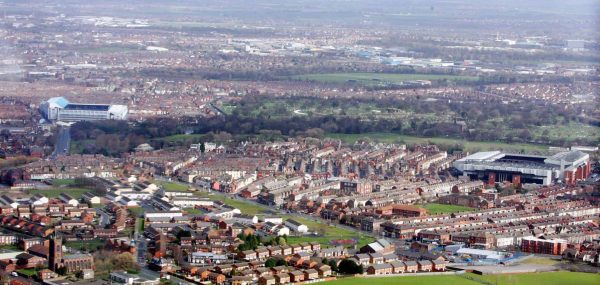
Walton MP Dan Carden, who has spent a great deal of time engaging with the communities of Anfield and Everton, sees the current situation as a battle for survival for people in the area, and one which requires emergency action. He told This is Anfield of his fears:
“Having emerged from the pandemic battered and bruised, local businesses opened their doors to a cost of living crisis and new challenges for survival.
“A perfect storm of soaring costs, staff shortages and collapsing customer spending means that, without urgent Government support, many will go under.
“The announcements from Ofgem are catastrophic. The people I represent are terrified that they will not be able to heat their homes this winter. Local businesses are teetering on the edge of collapse. This is an emergency, but the Government is missing in action.
“Ministers must cancel the hike, control runaway prices and deliver a plan to boost incomes and breathe new life into our struggling high streets.”
The economic catastrophe that lies ahead is matched only by the social one that will follow. The hospitality industry is about more than money and jobs, as important as those are to areas like Anfield.
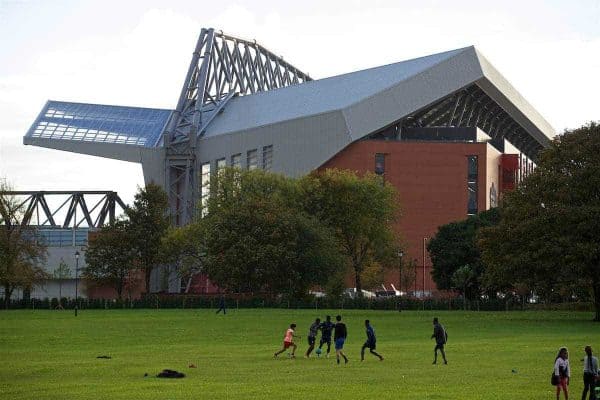
We know this in our hearts, because for us going to the match is about so much more than the game itself. It’s about socialising with mates before and after the game, and our trips to the pubs, cafes and chippies are a key component of all of that.
However, for the people of Anfield, these businesses and community hubs can be a matter of life and death. They are places to meet, sources of advice and support and vital to their day to day lives. The threat of closures, of boarded-up shops, risks undoing the hardwork of that community to rebuild itself over decades. More than that, it risks placing even more people into poverty and misery.
As you would expect from a community that has faced down so many challenges over the decades, the people of Anfield see collective action and community support as the way forward. In the coming months they will need those qualities in abundance. They know they can continue to rely on each other, but they and so many communities across the country desperately need much stronger support from government.
In the meantime, those visiting Anfield on matchdays can continue to show their solidarity by respecting the area, supporting the foodbanks and visiting those businesses that the community depends upon year round. Because, and this is no exaggeration, that may be the area’s only hope of alleviating what is already a looming humanitarian catastrophe this winter.
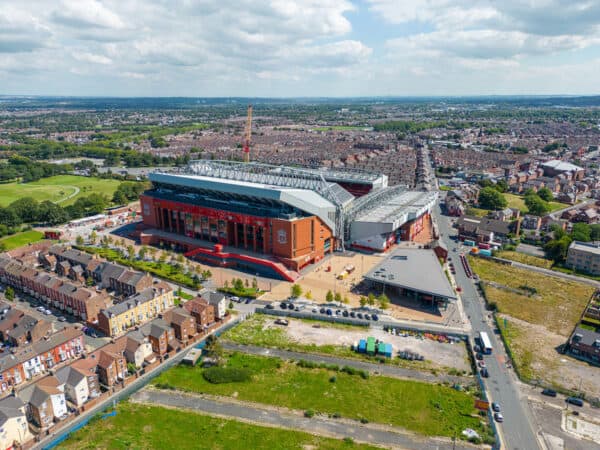












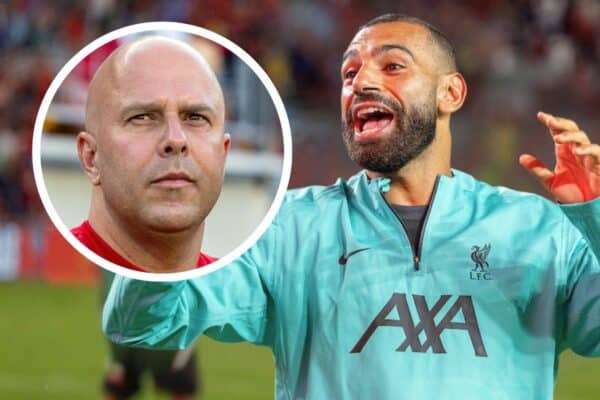




Fan Comments